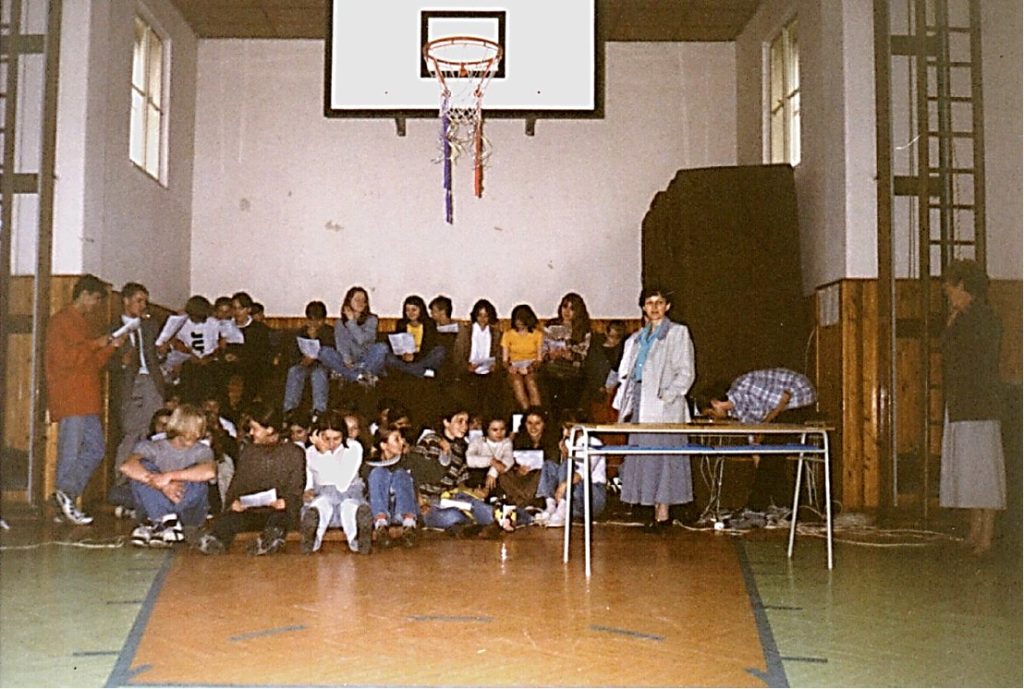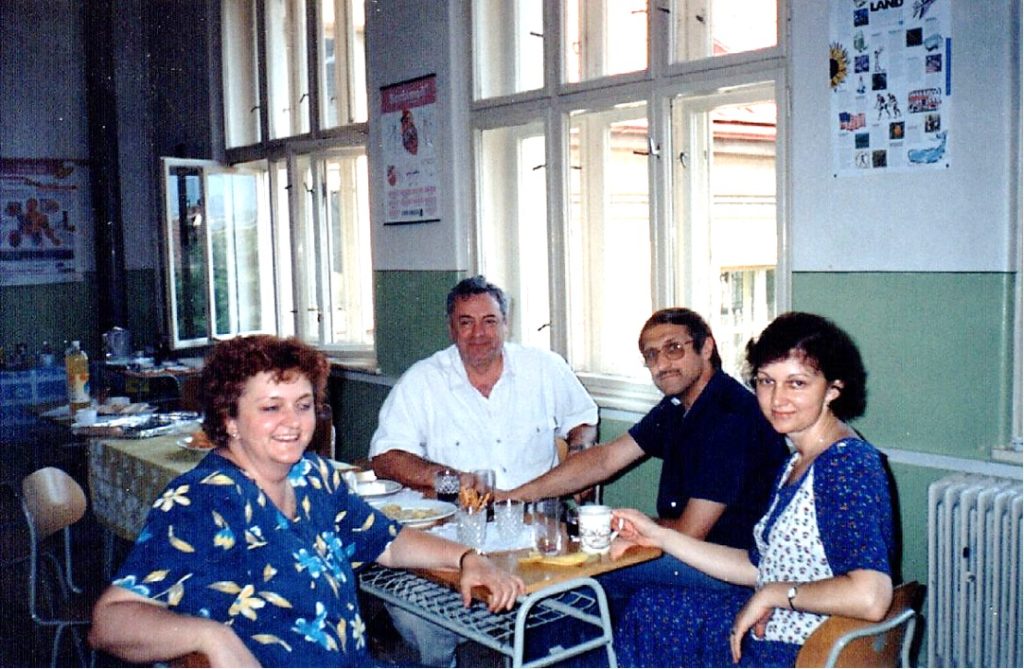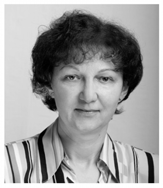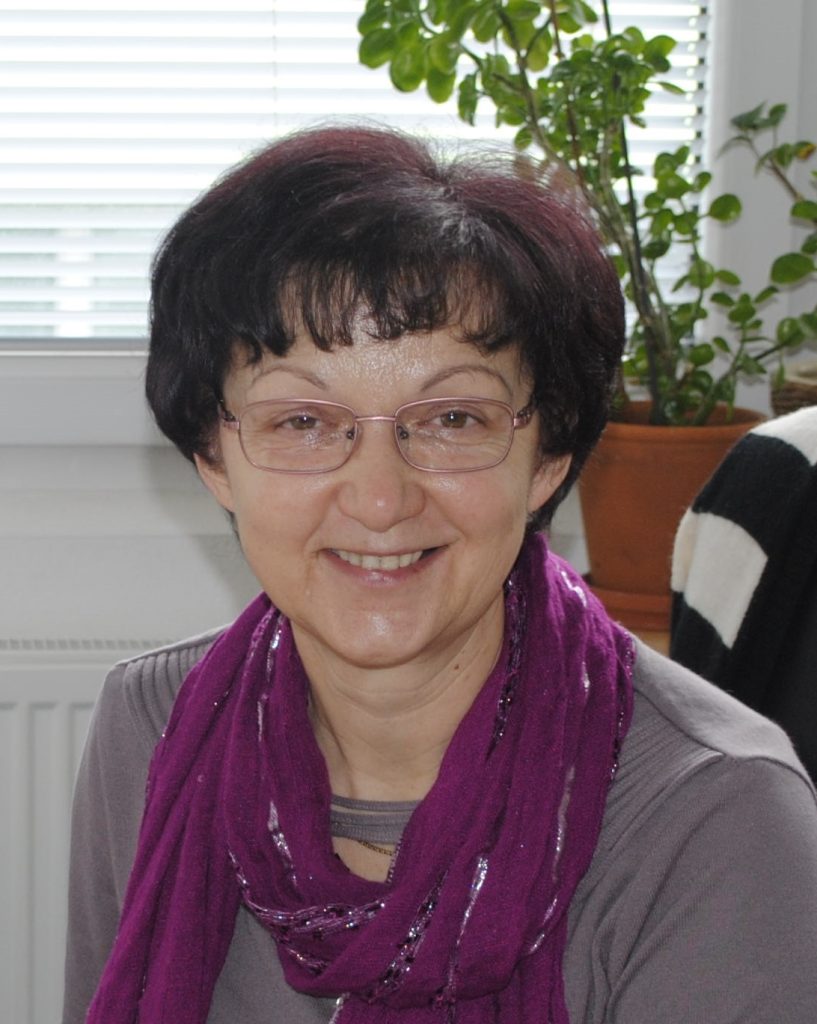Sučany Alumni proudly presents a long-awaited interview with PaedDr. Danica Gondová, PhD. a.k.a. Mrs Gondová who taught English and English literature at GBAS from 1993 to 2004 and together with her male counterpart, Mr Ruman, achieved legendary status.
How long did you work at GBAS and what are your most precious memories from this period?
I came to Sučany in 1993 and stayed until 2004. I really enjoyed those eleven years because I wasn’t only a teacher but also a learner. I had a lot to learn both from my students and my colleagues. I loved the fact that each day brought new challenges and that I had students who were motivated and very demanding. I liked teaching literature because many students were very open in those lessons, shared their opinions and real-life experiences and revealed their true self. Of course, I have lots of precious memories of the first group of students I was teaching, as well as those whose class teacher I was. Most of them were creative, critical, talented and willing to work hard, thanks to which the work was really enjoyable and rewarding.

What made GBAS special to you?
I think students, their motivation and their ability to be responsible for their learning and achievements. When I came, the school was in the third year of its existence, and it was an experimental school. It was very different from the other schools, had its own homely atmosphere. The teaching methods that we were encouraged to use by our British advisors were student-oriented, helped students develop their language skills and shaped their critical thinking.
The work itself was very creative because we were not only teaching, but we also had to design our own syllabus, work on the school’s language policy and assessment policy, we worked on various projects, etc. That gave us an opportunity to learn a lot and later, it opened many doors for me.
When and why did you leave GBAS?
I found out that at the Department of English Language and Literature at Žilina University, they were looking for an ELF methodologist. As I had had some experience as a teacher trainer and had published some articles, I plucked up the courage, applied for the job and was accepted.
If you were the “English mummy” when you were at GBAS, then Mr Ruman undoubtedly was the “English daddy”. Mr Ruman retired just a couple of years ago. What are your memories of the cooperation between you and him? Was there any other collaboration after you left GBAS?
It’s gratifying and fulfilling to hear that as I often had the feeling that the students were my children and I really felt responsible for them and their achievements. As to Mr. Ruman – as you know we worked in tandem and luckily, our understanding of teaching and learning English was pretty much the same. He had lots of excellent ideas, his English was fantastic, and he got very well with his students. We were both willing to spend quite a lot of our free time writing worksheets and other learning materials and mark them for each other.
After I left Sučany, I quite often went back during the first year to help with some paper work because Mr. Ruman took over the management of the department from me. We also went on working for NÚCEM for some time and were both in a team writing pilot English tests.

To this day, I remember the SAC, 4th floor a.k.a the English-speaking area, English league mornings, etc. Were there any other cool features that you remember that made English language learning at GBAS special or unique?
Right, these were really unique. I just hope that the SAC still exists – I haven’t been to the school for some time. When I was doing research while teaching at university, I visited many schools around Slovakia, including bilingual schools. In none of them did they have anything like the English-speaking area. I do believe until today that it was one of the best ideas that we had brought to life. The students who I met later didn’t show any interest in speaking English to me outside the classroom, which was a pity.
Another “cool feature” typical of GBAS was the English Debate Club. It provided some space for students to train for debate competitions. They were very enthusiastic about debates, took part in competitions at the national and international levels, and placed very well. It definitely helped all debaters develop their critical thinking and I think it was a fun way of developing their oracy skills.
How has learning and teaching English as a foreign language changed or evolved over the last 2 decades?
It is now understood (also in Slovakia) that the teacher’s role is not to teach but to facilitate learning, which means that the whole process needs to be learner-oriented, and language learning should focus on communication, not just on grammar rules and grammar exercises. I think these days there are lots of teachers who understand that, but there are also many who are very traditional.
Another piece of good news is that there are also quite a few schools that have started implementing CLIL (Content and Language Integrated Learning) and give students an opportunity to learn how to communicate in English about specific contents. Basically, CLIL is very similar to what you could experience in Sučany, i.e. learning other subjects through English. From the point of view of its methodology the difference is that children at elementary schools are not prepared to study other subjects through English and therefore, subject teachers also need to support children in their English (or any other foreign language). That means they also need to incorporate teaching English in their lesson plans.
What was your career path since departure from GBAS?
From 2004 to 2016, I was teaching EFL (English as a foreign language) methodology at the Department of English Language and Literature at the Faculty of Humanities at Žilina University, later at the Pedagogical Faculty at Trnava University. As a teacher trainer, I also co-operated with the Methodology and Pedagogy Centres in Bratislava and in Žilina and the National Institute for Education (SPU). One of the areas I was interested in was assessment and testing, so I also worked for the National Institute for Certified Educational Measurements (NÚCEM). I was also accepted to do some research for Oxford University Press and since 2012, I have worked for them as a research editor. I retired in 2019, but if needed I teach part-time at a secondary school in Martin. I also go on working for OUP and am a freelanced teacher trainer.
You have also published and worked on several English language learning textbooks. What was this experience like? How many did you publish and worked on? What exactly was your input?
I was one of the authors of Oxford Maturita Preparation Tests and created market-specific materials for secondary school course-books, such as Headway or Solutions (three various editions). I also worked as a consultant for many other course-books. I’m still working for OUP and of course, I’ve always enjoyed that – it is great to see that what you write gets published and used. When designing new materials, I always work in a team with British authors and editors and we comment on each other’s work so that the result is as good as possible. This cooperation has helped me understand course-book materials better, but it has also taught me to express my opinions openly and constructively or to receive criticism.
You are currently a teacher again at the Lutheran gymnasium in Martin. How does it feel to teach secondary school students again? How are they doing compared to the students at GBAS that you taught until the mid 2000s?
I was teaching at the Lutheran gymnasium in Martin until the end of November 2021. It’s very difficult to compare those students with the students in Sučany because the situation is very different now. For students in Sučany, learning English was a dream come true. Today, English is just one of many other subjects to be studied. Naturally, this is not true about all young people, some are enthusiastic and passionate about English, but there are also some who cannot or do not want to take the advantage of having lots of English resources not only at school, but also on the Internet. Generally, I’d say that GBAS students achieved a higher level of English than any other students I was teaching afterwards.
How are you and they coping with online learning?
I think online learning is very unfortunate. Having all the technology is great, but language is about communication and online communication cannot replace face-to-face interaction in class. I had to teach online for several months, but I didn’t feel very happy about talking to the faces on the screen.
What do you think are the current challenges that students and young people in Slovakia in their teens face today (before and after the COVID-19 pandemic)?
Their experience with online learning is not enviable and I think that their situation is rather difficult. Last year, students (and teachers) were thrown in at the deep end and had to learn very quickly how to adapt to the new situation without any guidance. Moreover, school is not only about education. It’s also about personal contacts, socialization and friendships. When schools close, many students feel disconnected from those they care about and believe that both socializing and learning are more difficult. I think that proper education has been replaced with temporary, partial solutions. I think we have not been prepared for a situation like this one – neither mentally, nor morally. And of course, not everyone has got the needed technology.
Would you like to add anything else or send a message to the GBAS community?
I’m very grateful that I could be part of the GBAS community for quite a long time because I received a lot. At that time, the school was ahead of its time and working at such a school was a great experience. I keep my fingers crossed that something of the spirit of progressivity and originality of the school remains in the future and that its students are equally determined and ambitious as my students were. A good school makes a big difference. I wish you all the best.
On behalf of Sučany Alumni – thank you very much, Mrs Gondová, for all your inspirational work, effort and bottomless patience with your students! You were, are and forever shall be part of the GBAS community. Tomáš Jacko

@PaedDr. Danica Gondová, PhD. (Mrs Gondová) I grew up in the beautiful Liptov region. Having finished the secondary school in Liptovský Hrádok, I studied German and English at the Philosophical Faculty of Comenius University in Bratislava. At the beginning of my teaching career, I taught English and German at the Commercial Academy in Martin, later at the Bilingual English-Slovak Grammar School in Sučany (1993 – 2004), and finally I taught EFL methodology at Žilina University. I’ve retired, but I’m still working as a research editor for Oxford University Press and am a freelance teacher trainer. In my leisure time, I enjoy being with my grandchildren, reading books, doing some gardening and if possible, hiking with my husband and family.

